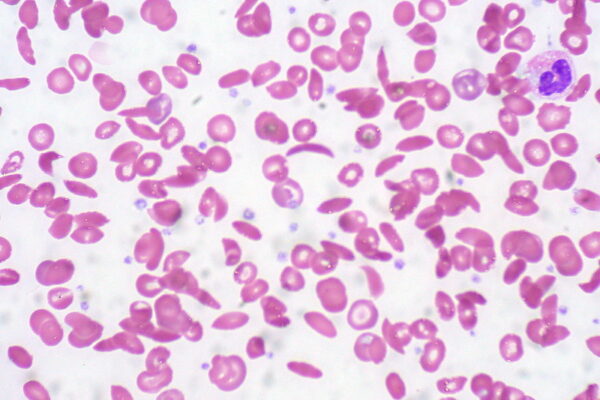
A Fulcrum Therapeutics clinical trial testing a potential sickle cell disease drug has been paused by the FDA. With the clinical hold on the early-stage study, Fulcrum becomes the fourth company this week with a stalled sickle cell program.
According to Fulcrum, the FDA placed the hold on the Phase 1b study due to previously reported preclinical data. Fulcrum said Friday it will suspend dosing of its drug, FTX-6058. It added that it will work with the FDA to resolve the issues, which were not specified. The agency said a formal clinical hold letter will be sent to the company within 30 days.
Sickle cell is an inherited disorder that leads hemoglobin-carrying red blood cells to become stiff and take on a crescent shape. Cambridge, Massachusetts-based Fulcrum is among the companies aiming to address the disorder with therapies that have the effect of boosting fetal hemoglobin (HbF) to stand in for abnormal hemoglobin or low hemoglobin levels.
FTX-6058 is a small molecule intended to inhibit the activity of a protein complex called PRC2, which in turn downregulates proteins that suppress HbF in cells. In its 2021 annual report, the company said that in lab and animal tests, this approach led to the activation of genes key to fetal hemoglobin production. Results showed “elevated levels of HbF with minimal adverse effects on important cellular health markers,” the report said.
Fulcrum had reached an open-label Phase 1b test enrolling participants with sickle cell disease. According to the company, initial data showed proof of concept and led to increases in fetal hemoglobin that could benefit patients. The company also said the drug has been well tolerated by patients and no drug-related adverse effects have been reported.
“Fulcrum intends to address questions related to modulation of the PRC2 complex and the preclinical data,” Robert Gould, Fulcrum’s interim president and CEO said in a prepared statement. “We continue to have confidence in the benefit-risk profile of FTX-6058 and remain committed to our goal of providing a differentiated therapeutic option for people living with sickle cell disease.”
In other sickle cell developments, Graphite Bio on Wednesday announced a corporate restructuring and the exploration of “strategic alternatives,” the type of language that typically signals plans for a merger or the sale of the company’s assets. The company is stopping further work on its sickle cell disease therapy, a move that follows last month’s voluntary pause of a Phase 1/2 test due to serious patient complication. Graphite made its therapy by the ex vivo CRISPR editing of a patient’s hematopoietic stem cells to correct the genetic mutation that causes sickle cell disease.
Two other therapies for sickle cell are in limbo. Sangamo Therapeutics has six-month data for the first patient dosed with BIVV003, which is a cell therapy made with an editing technology that employs zinc finger nucleases. According to data presented during the annual meeting of the American Society of Hematology, that patient achieved HbF levels of 45%. But in its report of 2022 financial results for the fourth quarter and full year, the Brisbane, California-based company said it won’t invest in Phase 3 testing in order to prioritize spending on other programs.
Sangamo now plans to look for a collaboration partner to take the therapy into a pivotal clinical trial. This program was previously partnered with Sanofi. But last year, the French pharmaceutical giant handed back rights to the therapy as part of a change to its genomic medicines strategy.
A big pharma pipeline reprioritization led to the end of a sickle cell therapy from Intellia Therapeutics. In that company’s report of 2022 financial results, the company disclosed that partner Novartis opted to discontinue development of that therapy, made by the ex vivo CRISPR-editing of a patient’s hematopoietic stem cells. Cambridge-based Intellia still has an internal program developing an in vivo editing therapy for sickle cell disease. This research is preclinical.
Sickle cell disease research has produced wins. Oxbryta, a small molecule drug developed by Global Blood Therapeutics, won its FDA approval in 2019. That drug, a once-daily pill, was the centerpiece of Pfizer’s $5.4 billion acquisition of Global Blood last year. But genomic medicines offer the prospect of a potentially curative one-time treatment. Vertex Pharmaceuticals and Bluebird Bio are nearing regulatory submissions for their respective therapies, which are made by ex vivo editing of a patient’s stem cells.
Photo by Flickr user Ed Uthman via a Creative Commons license















